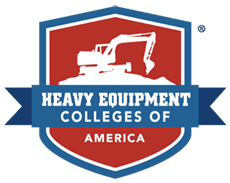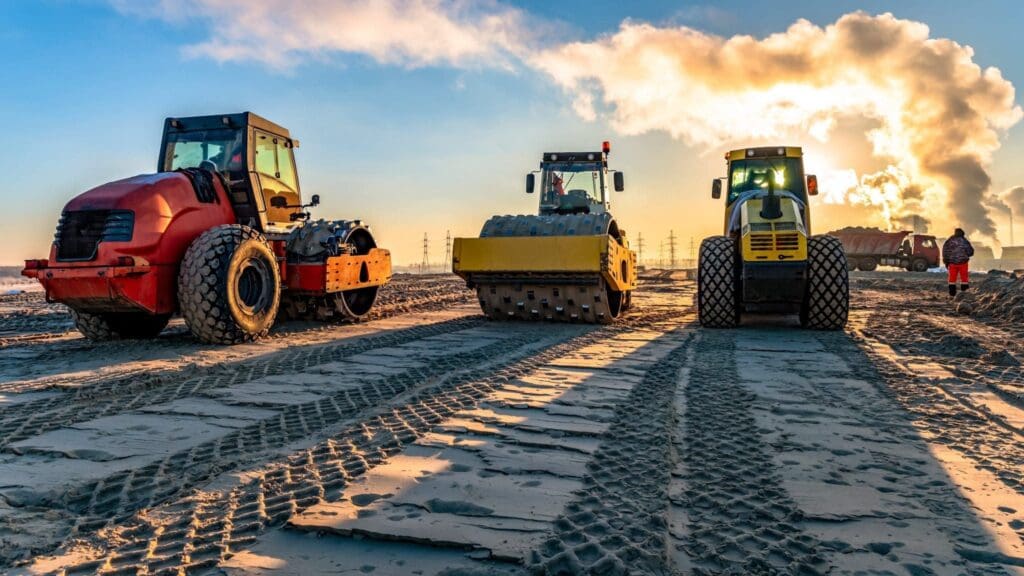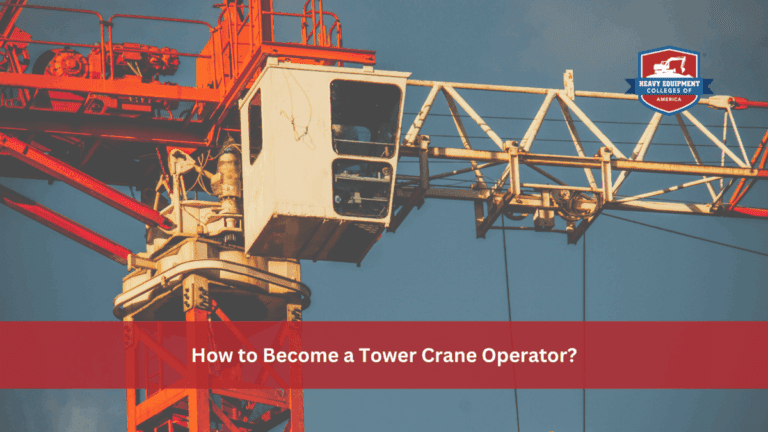When starting out in a new career field such as construction, it can be tough to find a job that’s hiring and will interview you. Many jobs are looking for applicants with experience and certain skills, and it can be tough to get your foot in the door as a new graduate.
If you’re looking for ways to make yourself stand out as an applicant, Heavy Equipment Colleges of America (HEC) is ready to help prepare you for that. We’ll go over 12 tips to help prepare you to find a heavy equipment operator job in the construction industry.
Table of Contents
Tips to Find Heavy Equipment Operator Jobs
Importance of Certifications
Many heavy equipment job positions require candidates to have a specific certification from an accredited institution. This shows your employer that you have the knowledge and skills to safely operate the equipment you’re certified in.
At Heavy Equipment Colleges of America, we offer a variety of equipment certification programs. Whether you want to work with tower cranes or lattice boom cranes, we have a program for you.
Vocational Schools and Apprenticeships
Before you set foot on a construction site, you need proper training and education on proper workplace safety procedures and equipment operations. Vocational schools offer real-time learning on the basics of operating heavy machinery and how to keep yourself safe during the process.
Look for programs that also offer apprenticeships. Not only do you get additional training in an apprenticeship, but you also have the opportunity for hands-on learning as you shadow other operators.
Creating a Professional Resume
When applying for jobs, whether it’s in person or online, your resume is the first thing employers will see. It’s essentially a screenshot of your professional career up to this point and your qualifications for the position.
The goal of this document is to make a strong, lasting impression. Keep the format clean and simple, and thoroughly list your previous work and related experiences. List out every apprenticeship, training, and certification program you’ve completed to get to where you are now.
Applying for Jobs Widely
Construction sites and other job fields are always looking for qualified heavy equipment operators. Don’t limit your search to companies in your area. Be sure to cast a wide net and apply for jobs you’re qualified for and interested in.
The right job for you is out there, so get your resume out there and apply to a wide range of positions to maximize your chances of landing an interview.
Build Your Future in Heavy Equipment Operations!
Get Certified & Advance Your Career with HEC Today!
Accelerated Programs | Multiple Locations | Job Placement Help
Open The Door To A New Career!
Start Enrollment ProcessFind The Right Location For YouFollowing Up On Applications
When you start applying for jobs, you don’t have to wait until you hear from them first. When you send out your resume, wait a few days and then send a follow-up email or inquiry. Keep it professional and ask the employer what the current status of that job opening is.
There’s a balance between showing interest and drive as an applicant and being pushy, so don’t pester them until you hear something back. Just show that you are genuinely interested in the role and would love to learn more about it in an interview.
Check our our Most Recent Heavy Equipment Training Blogs:
Leveraging Personal Networks
In any industry, it’s a matter of who you know. Building a strong network of connections in the heavy equipment industry gives you opportunities to get your foot in the door.
People in your network can put in a good word for you at their workplace or get you connected to the right people to schedule an interview and find a job.
Building Professional Relationships
Any connection you have in the industry, whether it be a professor from your school or an old coworker, can be used to give you an edge as a job applicant. Having professional relationships and connections opens the door to job opportunities you may not have had before.
Try not to burn any bridges. You never know which connection or former coworker you may want to reach out to in the future for a potential job.
Entry-Level Positions and On-the-Job Training
Depending on your level of experience, don’t hesitate to look for entry-level job positions. These roles typically require less experience than more senior positions, and they’ll offer you additional on-the-job training.
The more training you get, the better. Entry-level positions will teach you the ins and outs of workplace safety and how to protect yourself and others in a fast-paced environment.
Apprenticeships For Hands-On Learning
Learning in a classroom setting with lectures can give you an extensive, in-depth look at everything you need to know as a heavy equipment operator. From OSHA compliance to basic first aid, it’s a great environment to learn the basics.
However, apprenticeships can give you hands-on learning opportunities to build your skills. Rather than reading about cranes in a textbook, you get firsthand experience working with one in a safe and controlled environment under the guidance of a mentor.
Adapting to Technological Advancements
The equipment you will use on a job site will change as the technology improves over time. While there’s nothing wrong with sticking with what you know, adapting your skills to work with the technology as it comes out will help you stand out from other job applicants.
Continuous Learning Opportunities
There is always something new to learn related to your career field, so take advantage of learning opportunities that are available to you. Whether it be conferences or educational programs, building your skills and attending these events shows employers that you’re dedicated to this field and are ready to work hard.
Why Heavy Equipment Colleges of America?
Heavy Equipment Job Boards
Employers will post heavy equipment operator jobs on many different online job boards, allowing you to explore the options available and find the right fit for you. These boards are specifically designed for heavy equipment-related jobs, so you won’t have to comb through unrelated jobs to find the postings you’re looking for.
Explore a New Career With HEC Training Programs
Working as a heavy equipment operator can be a rewarding and fulfilling career. The effort you put into gaining experience and getting your foot in the door will be rewarded with a dependable, hard-working job. It can be tough to take that first step, but the right preparations can set you up for success.
Want to start a career as a heavy equipment operator? Heavy Equipment Colleges of America has a wide range of programs to help you prepare for a job in the construction industry.
We have programs tailored to a variety of heavy equipment, including mobile cranes and fixed cab cranes. Get in touch with one of our admissions representatives today!
Build Your Future in Heavy Equipment Operations!
Get Certified & Advance Your Career with HEC Today!
Accelerated Programs | Multiple Locations | Job Placement Help
Open The Door To A New Career!
Start Enrollment ProcessFind The Right Location For You





